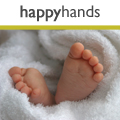3 - 5yrs Clinic
Growing up
Preparing your child for school
If your child has been attending a nursery for a couple of years before going to school then some habits will already have been formed. However it’s worth taking an objective view a few months before your child does start school, to assess whether or not your child is really ready for this exciting new chapter in his life.
Personal habits
• Hygiene and loo breaks
Make sure your child is confident about going to the toilet on his own and that he knows how to wipe himself and wash his hands. If your child is still in nappies it really is time to potty train. If however he is just using trainer pants at night this is absolutely fine.
Also make sure your child understands the importance of blowing his nose with a tissue, coughing with his hand over his mouth, and washing his hands when they are dirty or before eating anything.
• Sharing and good manners
If your child has been at home with you until he starts nursery or school, he should already have learned all about sharing from experiences with friends. If not, this is a good time to get him into the sharing habit, otherwise getting attention, waiting patiently in line and doing shared activities like drawing, painting etc will come as a shock to him.
• Dressing himself
By the time your child starts school he should be able to do up his own coat, get changed (for PE) and put his shoes on. Avoid buttons, belts and laces for the time being if these are too tricky, but do start to encourage independent dressing.
• Being without you
If you haven’t left your child with a nursery or playgroup before now, start to leave him with a friend or relative on a regular basis. At first don’t leave him too long but try to expand this time away so that eventually he is used to the idea that he can be happy without you and crucially, that you return when you say you will.
Learning habits
• Levels of knowledge
Your child should be able to count to ten and know basics like the names of colours before starting school. However, there is no need to hothouse your child with literacy and mathematics levels beyond his age. Some children will show an interest in recognising some words and numbers before starting school, but make sure your child enjoys this and understands what these stories or counting games mean – engaged comprehension is more important than ticking educational boxes.
• Being able to express himself
Many children start school without developed means of communicating. Talk to your child, enjoy each other’s gestures and other forms of communication. Through this your child will begin to appreciate how much more enjoyable life is when he is understood and will want to become more capable and confident in this area.
• Songs and stories
Singing nursery rhymes and sharing picture books will give your child much better building blocks for starting school than you probably think. These simple, playful activities provide ways of counting, understanding narrative and beginning to comprehend basic social principles (like overcoming fear, shyness, frustration etc).
Related Articles
Games to play with toddlers and preschoolers
Gifts for three-to-five-year-olds
Preparing Premature Infants for School
Nurseries: learning through fun
What is the Early Years Foundation Stage?
Sumtastic - what's it all about?
New play and toy shopping advice website for parents launches
Christmas Toddler Toys.. dolls houses and playsets
Christmas Toddler Toys.. ride-ons
Christmas Toddler Toys.. pint-sized home
Related Products
Ecohydra, Antibacterial Hand Sanitiser
Have Your Say
Be the first person to comment on this article, just post a comment below.





In order to post a comment you need to be a member. Join Now | Sign in